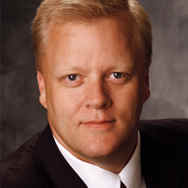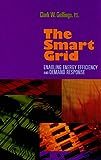
Only the rich will be able to afford energy for heating/cooling when the Smart Grid goes nationwide. At least, that is the logical conclusion to be drawn from an early example of the Smart Grid – in Colorado, where the budget has tripled in two years.
Xcel Energy has begun charging customers across the state to recoup some of the skyrocketing costs the company has incurred building its smart grid project in Boulder,according to local media. Intelligent meters in homes and companies, and variable energy pricing depending on demand, are the main features of the Smart Grid.
In response, the Colorado Public Utilities Commission has decided to take a larger role in regulating Xcel Energy’s “SmartGridCity,” which commissioners say will increase the transparency of the energy project.
The smart grid already allows Xcel to read meters in Boulder remotely, route power around bottle-necked lines and detect power outages without relying on people calling in.
I do acknowledge that it’s going to be long term in its acceptance,” says Xcel Energy’s former CIO, Mike Carlson. “Unfortunately, in the way people look at it today, they take that as the energy company controlling when and why they use electricity,” said Carlson who has since left Xcel to take a job with GridPoint, also a member of the Boulder Consortium.
Ultimately, the finished system will also allow customers to see real-time data reflecting their energy use and then make energy-conserving decisions about how household appliances draw power and when. It will also allow Xcel access to huge amounts of sensitive data. No surprise that Consortium partners include Ventyx, the world’s largest private software provider to the utility industry. The Boulder experiment is project-managed by Accenture, a global outsourcing company. Accenture ought to be paying the City of Boulder for the valuable experience they are getting on this early stage project. But in fact it is their fees which have shot up during the project.
When Boulder was chosen for the smart grid project in March 2008, Xcel Energy projected that capital expenditures for the SmartGridCity would be about $15.3 million. By May 2009, Xcel had changed its projected cost to $27.9 million, and now the company believes the total bill will reach $42.1 million, not including the costs of operating and maintaining the new grid.
Dec. 4, the Daily Camera in Boulder reported the Public Utilities Commission approved Xcel Energy’s request to raise customers’ rates 6.5 percent. The majority of the increase will be used to pay for Comanche 3, Xcel’s new coal-fired unit at its power plant outside of Pueblo.
But $11 million from the rate increase — which went into effect Jan. 1 — is earmarked to cover costs associated with Boulder’s smart grid, including capital investment, taxes and operation and maintenance fees for 2009 and 2010, according to Karen Hyde, Xcel’s vice president for rates and regulatory affairs.
And though the commission approved the rate increase, the fact that Xcel was asking for permission to charge all of its Colorado customers for part of the smart grid’s costs — which was not part of the company’s original plan — was a red flag for some of the commissioners. They were concerned that Xcel had not clearly outlined all the funding sources for the project, among other things.
 From the beginning, Xcel planned to bring on industry partners that would share the cost of the project, which will likely exceed $100 million, including operation and maintenance. Now, Xcel has seven “consortium” members, but it’s not clear what their financial contribution will be.
From the beginning, Xcel planned to bring on industry partners that would share the cost of the project, which will likely exceed $100 million, including operation and maintenance. Now, Xcel has seven “consortium” members, but it’s not clear what their financial contribution will be.
“With respect to the co-investment from strategic partners, questions remain as to the percentage of contribution from these partners,” Harry DiDomenico, a rate analyst at the utilities commission, said about Xcel’s rate-increase request at a commission hearing last fall. “Without knowing the level of such contribution relative to the project costs, it is difficult to ascertain what portion ratepayers rightfully should bear, if any. Further, it is clear that not all available funding sources for the project have been assessed.”
On Dec. 24, the commissioners, at the urging of the city of Boulder, decided to require Xcel to file for a Certificate of Public Convenience and Necessity. Normally, these types of certificates are filed by utilities before they build new infrastructure, such as power plants or transmission lines, to prove that the investment would be necessary and prudent.
Requiring a Certificate of Public Convenience and Necessity for the smart grid would give the Public Utilities Commission the ability to regulate the project.
“Ratepayers would gain the benefit of a regulatory structure that creates an environment where, among other things, costs are known and measurable, and the benefit of such costs to the ratepayer can be ascertained,” DiDomenico said.
Commissioners said their decision to require a certificate does not mean that they don’t support the smart grid project.
“We believe that the smart grid concept holds great promise and we wish to encourage innovation and energy efficiency from the utilities we regulate,” the commissioners wrote in their Dec. 24 ruling.
Jonathan Koehn, Boulder’s regional sustainability coordinator, said the city also supports both the smart grid project and the Certificate of Public Convenience and Necessity.
“We believe it is appropriate for the commission to oversee the future financial and programmatic treatment of this project,” Koehn said in an e-mail. “We are highly optimistic about the potential capital investment in SmartGridCity. However, the city also believes that important questions about SmartGridCity remain unanswered.”
For example, Koehn said the city has never gotten an answer on who should pay for the project and whether the final cost is justified in terms of operational and environmental savings.
Xcel appealed the commission’s decision to make the company file for a certificate — which would expose many future decisions about the smart grid to a lengthy bureaucratic process — but the commission denied the request last week.
“We don’t feel that the CPCN was necessary because we see this as normal course of business and making improvements to the system,” said Xcel spokesman Tom Henley.
Henley also said the increase in the smart grid’s forecast cost is not cause for alarm.
“SmartGridCity has always been a research and development process,” he said. “It’s a living and breathing laboratory, and we’ve always said all along that there’s parts that will work and parts that won’t work.”

2 Responses
Friends, Methane energy has been put to the side because it is not plausable on a large scale. In other words, the government (or monopoly) would not be able to produce it for a profit. However, it is very manageable on a smaller scale. The u.s. government is already using this technology at a smaller scale because it so obviously the best available choice out there. We should all be able to have our own methane energy generator – at not monthly cost – except for the waste we produce: talk about a renewable source. It may cost us a lot of jobs, but those folks could be used to sell, distribute, install, repair, replace and upgrade this equipment which will take several years, possibly the rest of their lives. Meanwhile the government could continue to get their energy from those old school resources if they choose. We have lost so many of our basic freedoms.
I would beg for a re-write on the opening sentence. It may be true that one day only the rich will be able to afford to heat and cool their homes AS PART OF THE GRID. but you don’t have to be rich to do it off-grid.